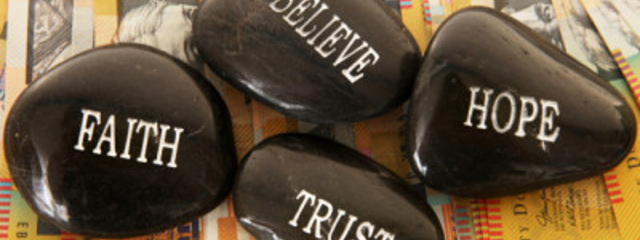I love studying, working with and sharing stories about the next generation for it is a subject that encompasses defining wealth, the impact of our actions and indeed our purpose. In a nutshell it incorporates the purpose of our wealth…the purpose of our lives…and how we maximise both.
But how?
John F Kennedy had said, “To those whom much is given, much is expected.”
And we have in the large part great expectations of the next generation.
And yet, one of the greatest fuels of disappointment is expectations.
Seneca, the Roman philosopher and senator, attributed anger to frustrated expectations.
So here we have one of the dichotomies faced, not only by wealthy families but also by human beings at large.
And it is our humanness I would like to focus on for the next few minutes in determining what we pass on to the next generation and how.
Some time back, I was at a conference and was asked, “What is the responsibility of the family?”
Any thoughts?
In my opinion, the primary responsibility, regardless of your level of wealth is to best prepare your children to survive and thrive in this world, to be good human beings. You may give them lots of money, but do they have the wisdom on what to do with it? If there is a downturn in the economy and fortunes are lost, do they have the ability, fortitude and resourcefulness to rebuild it? What about if they grow the wealth or forge a path that is away from the ethos of the family? What if they are fantastic in their business but are terribly unhappy in their private life?
There is so much written about succession, legacy, constitutions, and governance that I sometimes think we have forgotten what it’s all about and left out the greatest aid in our cause – the love and respect we have for each other as family.
But do we? Do we truly understand each other?
Do we empathically listen to each other?
Do we really endeavour to put ourselves in the other person’s shoes?
Or do we adopt an attitude of – this is how we have always been, this is how things are done in our family.
What do we really want for the next generation?
Isn’t it really about them growing into the people they have the potential to be?
Every family is different and every human being is different too. It is not for me to tell you how you should or shouldn’t do things. My intention is rather to provide you with a framework to see where you are right now, to contemplate where you would like to be, what matters, to consider if your current strategy will get you there, and the steps to course correct.
We are all familiar with a tree. But the tree didn’t come out of nowhere. You first need the seed, you need to prepare the soil, you need to plant the seed in the right environment to ensure its roots take hold, and you need to provide it with the appropriate amount of water and sun to ensure it grows. It is the same with the next generation and it is these elements that we will extrapolate to practicalities in nurturing and developing the next generation.
There are three 3 core areas:
- Mission & Purpose;
- Values & Self Awareness;
- Actions
Mission & Purpose
Most businesses have a mission statement and a purpose. It is well articulated, often hung in the reception, in the corner offices, on the fronts of prospectuses, on the website.
But how many families take the same care in developing and understanding their own family’s purpose, what they stand for, what is important to them, their raison d’etre? This is not a nice to have but a must have – a unified philosophy that instills a sense of identity and direction in the family. This is not something that is imposed by an outside adviser, marketer or lawyer, all scenarios I have heard of, treating it as a check box on the path to governance, but rather a process of exploration and discussion.
This is not too dissimilar to building the foundations to a building – do you want a shack or the ability to grow into a soaring tower? It is the same amount of depth the family and its members need to go through if they want to grow as a family and instill growth in the next generation. It is an essential process that provides an opportunity for other family members to voice their perspective, dreams, hopes and desires in co-creating the environment which is most essential for their development and growth – their home.
The Purpose & Mission become the bedrock upon which the next generation understand the character that was weaved into the family through the generations, the moral compass that will help them determine the right path to choose, in discerning the multitude of options presented to them. It provides them with a backbone, a support mechanism upon which to draw wisdom. As long as it is done correctly, with the appropriate level of exploration and discussion it requires, and deserves.
One family of noble lineage stemming back to the 800s epitomised their family philosophy in the following way: our family is like a chain along a wall, attached by a nail. Some nails are lower, others higher, holding the line of the chain. Your responsibility is to ensure you place a nail. It doesn’t matter if up or down, but ensure you place a nail. It is this simple philosophy that enabled this next generation member to muster the courage to reshape himself and move forward after losing everything in the financial crisis. This simple phrase enabled him to remember the character instilled in the family, the courage and resilience of the family, and the standing of their good name. This went on to determine how he handled the situation he faced, how he interacted and engaged with others, how he conducted his business affairs, how he severed the ties he needed to, all with the dignity, grace and integrity instilled in him along his line.
That is the power of Mission & Purpose. The ability to thrive in the face of challenges.
Values & Self-Awareness
Has anyone ever upset you, even perhaps made you angry?
It probably wasn’t the person’s intention to make you angry. But their actions or what they said happened to impinge upon one of your values. Moreover, their behaviour was also linked to their values. We see people like icebergs. Not from a temperature perspective but from a depth perspective. We only see the tip of the iceberg, the one-eighth peering above the surface, people’s behaviour. But the majority of the iceberg lies beneath the surface, in the depths of the water it occupies. And this is where we have our beliefs, perspectives and values, lying beneath the surface and façade of our actions, often lying within our unconscious mind.
Failing to be aware of, or sensitive to, what these are is like being in constant autopilot.
Imagine being in a plane, relying on the autopilot but you don’t know the controls, navigation system or even what all the parts are called. Do you think that journey will end well if something unexpected comes into sight? And when life happens, it is values and perspectives that are affected.
Let me share a story to illustrate: One family had built a significant investment company and it was understood this was a family business to be grown and transferred to future generations. Then tragedy struck. The father was diagnosed with cancer and, shortly afterwards, his wife also. They underwent treatment and, thank goodness, they survived. The experience shocked the family and all were immensely grateful the parents survived. The experience affected the parents profoundly, driving in them the desire and will to found and endow a world-class medical research facility dedicated to uncovering the causes, treatment, prevention and cure of the genetic cause of cancer and other genetically based diseases. In addition, they tithed 40% of the family business’s annual profits to fund the facility.
That is how values are shaken and reshaped – when life happens.
Actions
The third is Actions. All the goodwill in the world, all the lovely statements and words will do no good if we do not follow through with our actions. We are pulled in a million and one directions with many demands on our time, and mostly looking forwards not back. We have all heard the expression ‘with the benefit of hindsight’.
So it is the ultimate hindsight I would like to touch upon – the topic that is rarely talked about – and that is death.
It is ironic that as human beings we avoid the topic. How many times have you heard a patriarch, even yourself say, “if I die…”? We love guarantees, certainty, and yet we shy away from the ultimate deadline. But through this lens, we can glean much insight into what is truly important to us: Where we focus our time and efforts; What we put off for another day; Who we say no to; What and whom we say yes to; What we don’t say waiting for the right time or holding on until the other makes the first move.
Consider this if you will – imagine you had a week to live:
- What would you do differently?
- How would you behave differently?
- Who would you choose to share time with?
- What conversations would you ensure you had?
- What can you now see that you couldn’t see before?
- What are you grateful for?
- What really matters?
- When you are no longer here, what do you want to be remembered for – the empire you built, or your character, how you conducted yourself, how you treated others?
One family’s experience that resounds in me is the story of a beautiful woman, now with children and grandchildren of her own. She is a humble and soulful lady, doing her best to be a steward for the wealth as well as being a loving wife, mother and grandmother to her family. In sharing her story she revealed that her father worked very hard, committed to the company and what he was creating. His focus on his work, as well as his belief that women had no role in business, meant that he shared very little time with his daughter, to the extent that she learned who he was and his accomplishments through a book. On the other hand, he did share a lot of time with his grandchildren who can now forge their own path instilled with the grandfather’s philosophy.
Nelson Mandela said “In judging our progress as individuals, we tend to concentrate on external factors such as one’s social position, influence and popularity, wealth and standard of education…but internal factors may be even more crucial in assessing one’s development as a human being.”
So in considering what we leave the next generation and how, I would impress on you the importance of focusing first on the foundations. This enables the next generation to have the capacity to delve within themselves to grow and have the impact they are capable of. It also enables us, to understand and embrace what matters and to be the best we can be. For it is in our own life’s example that we leave the ultimate testament to our legacy.














